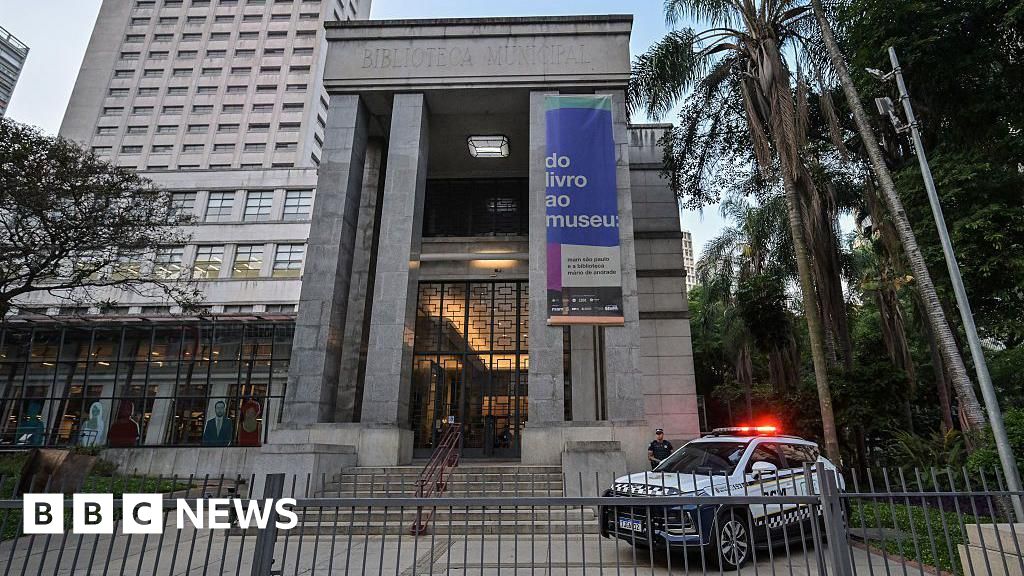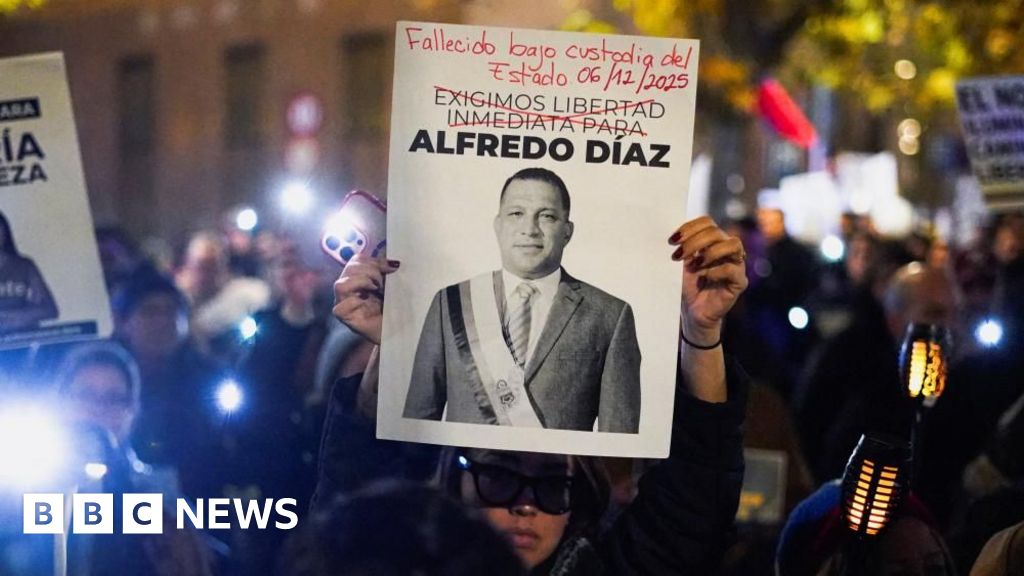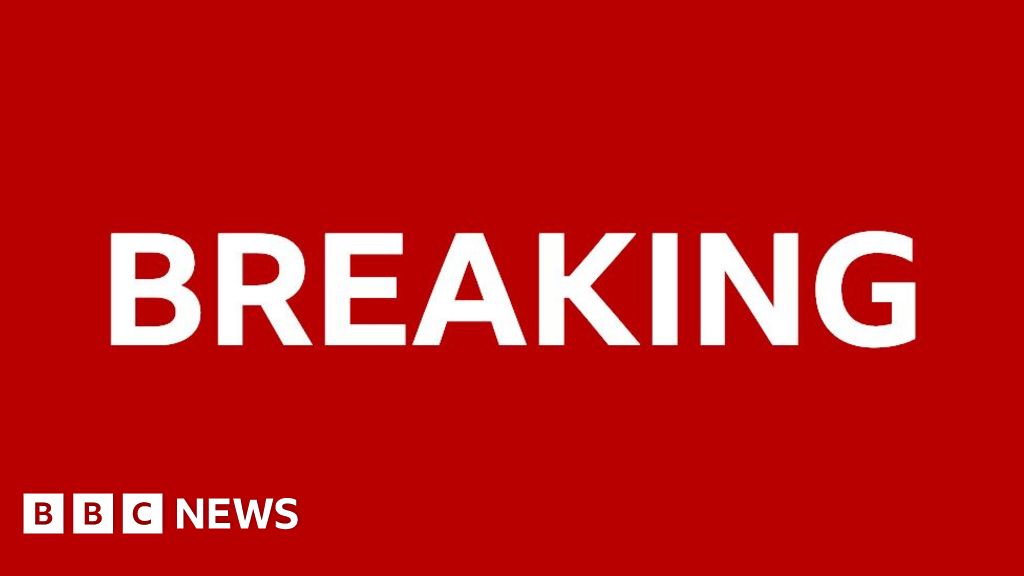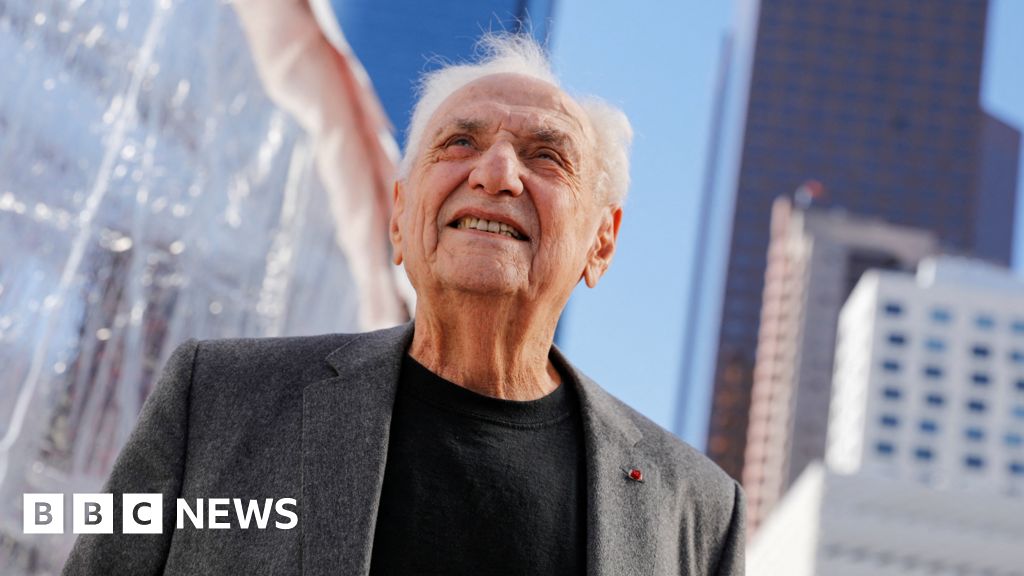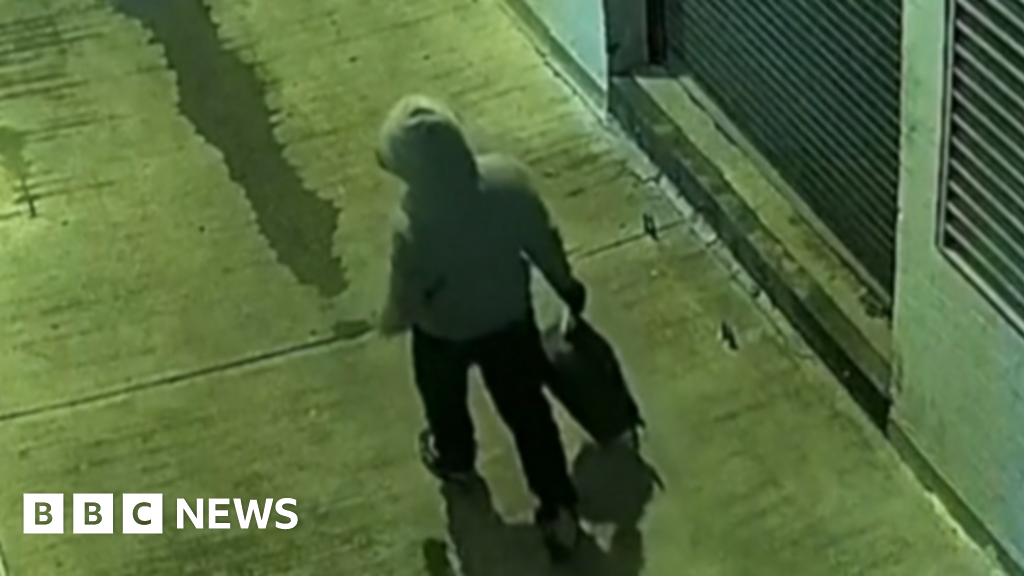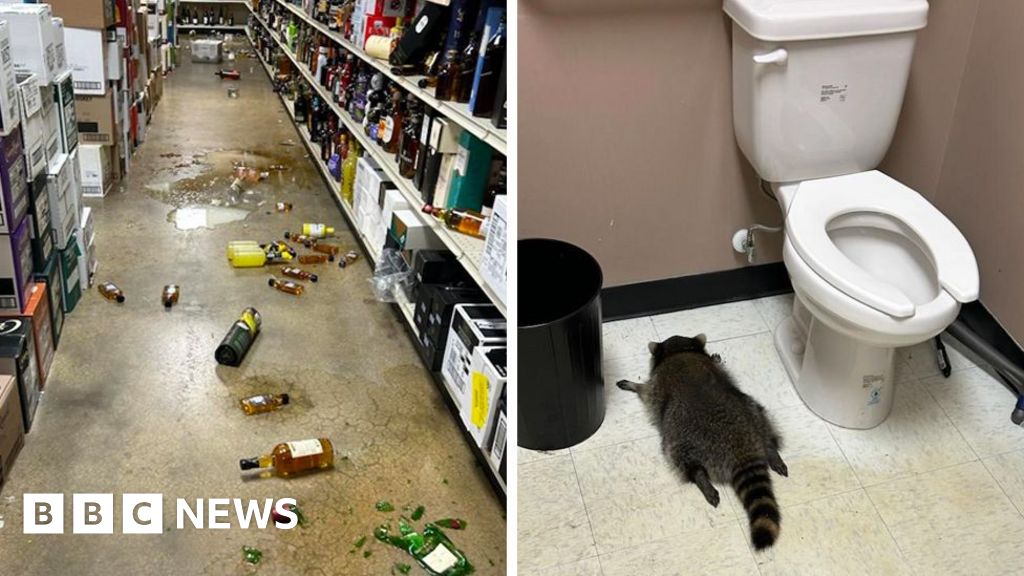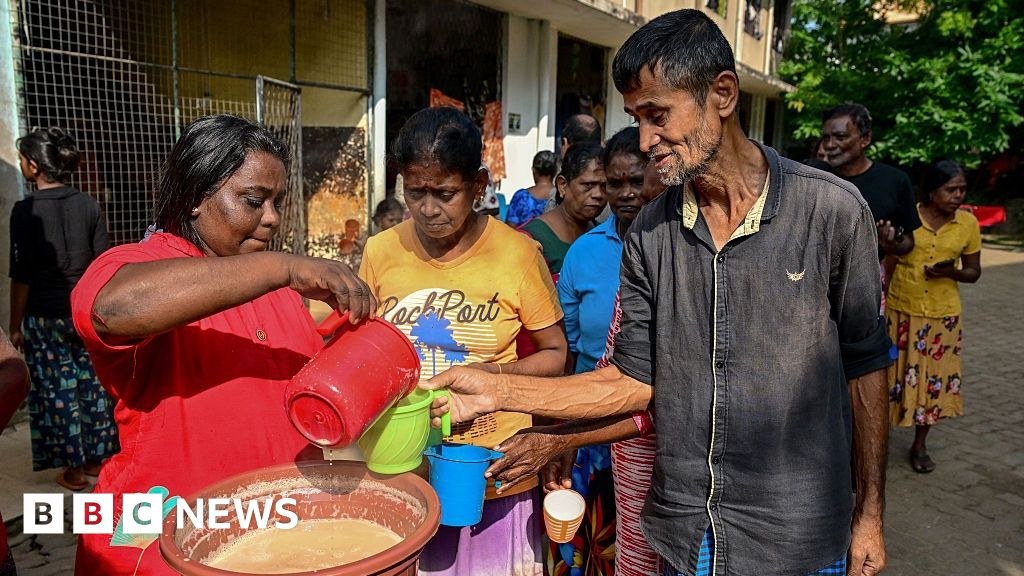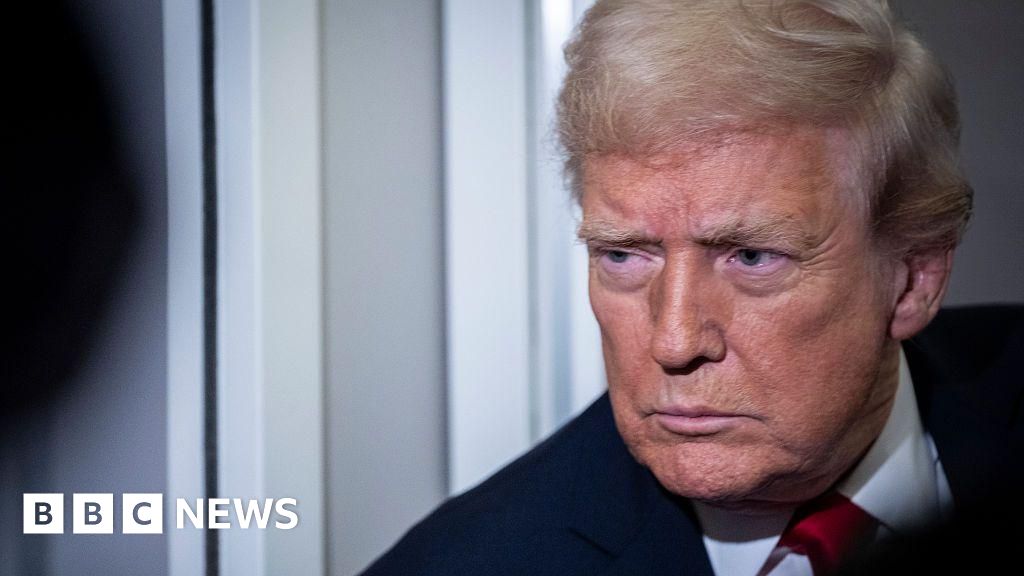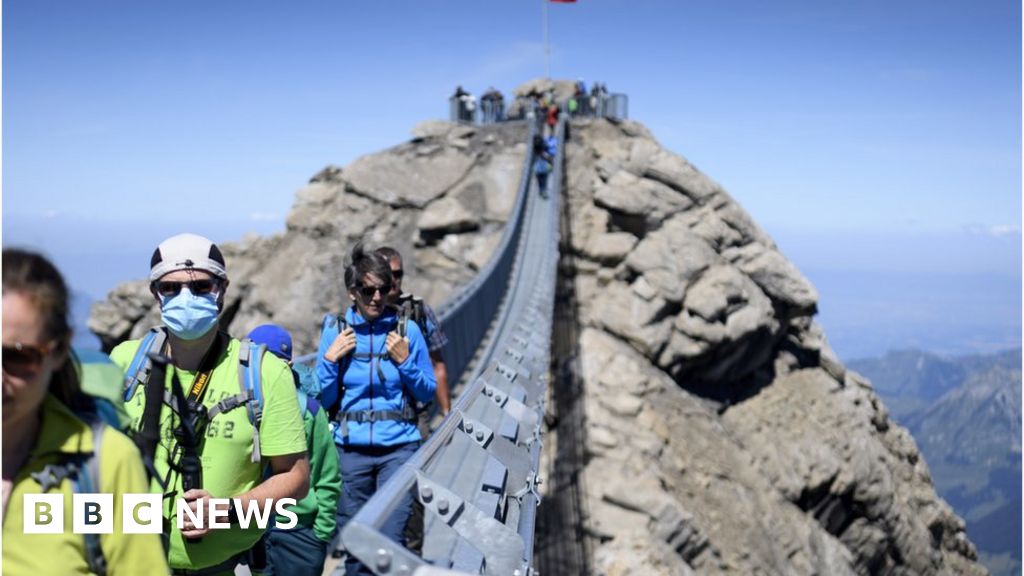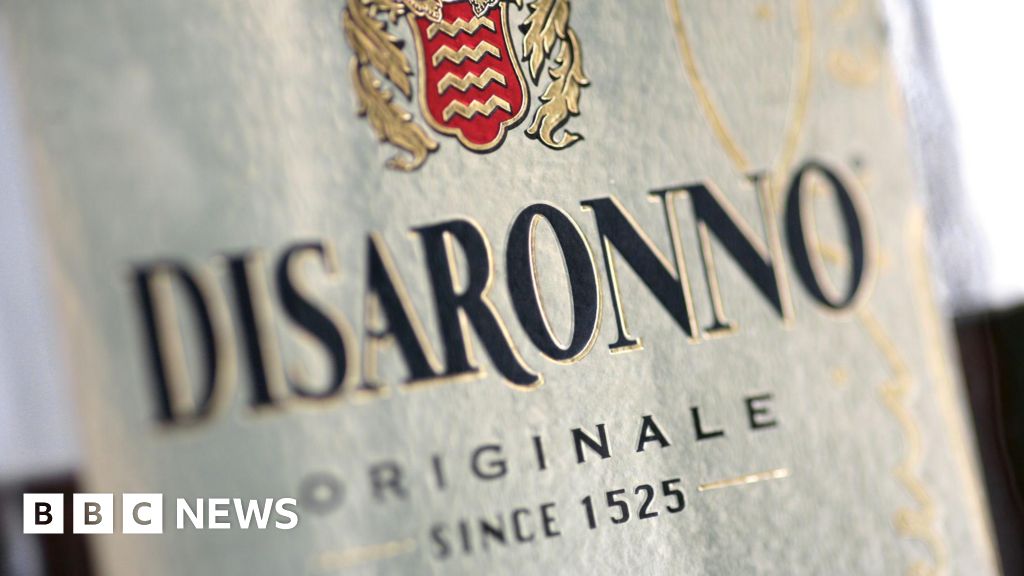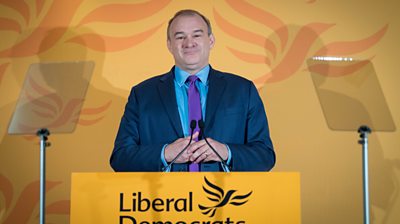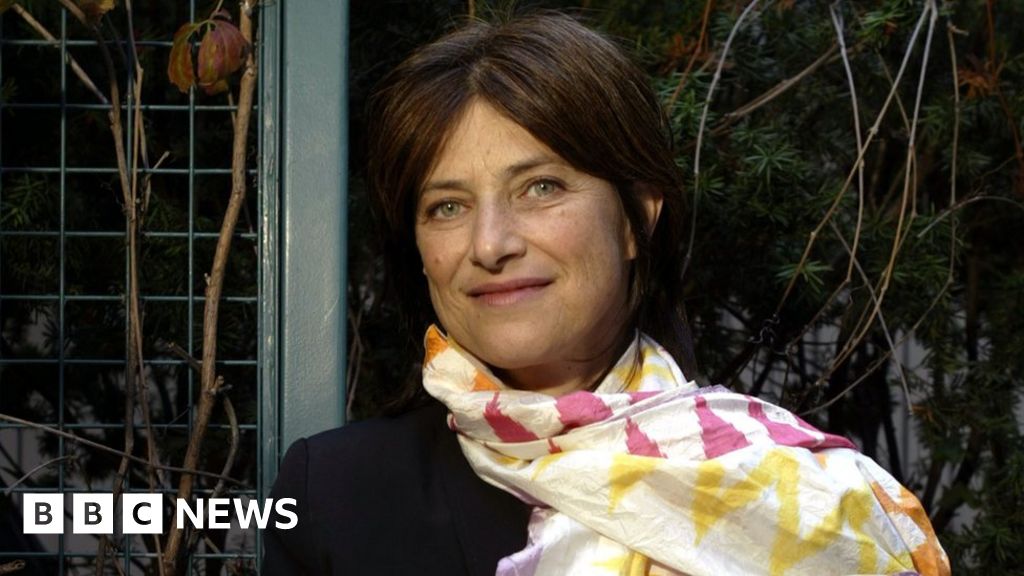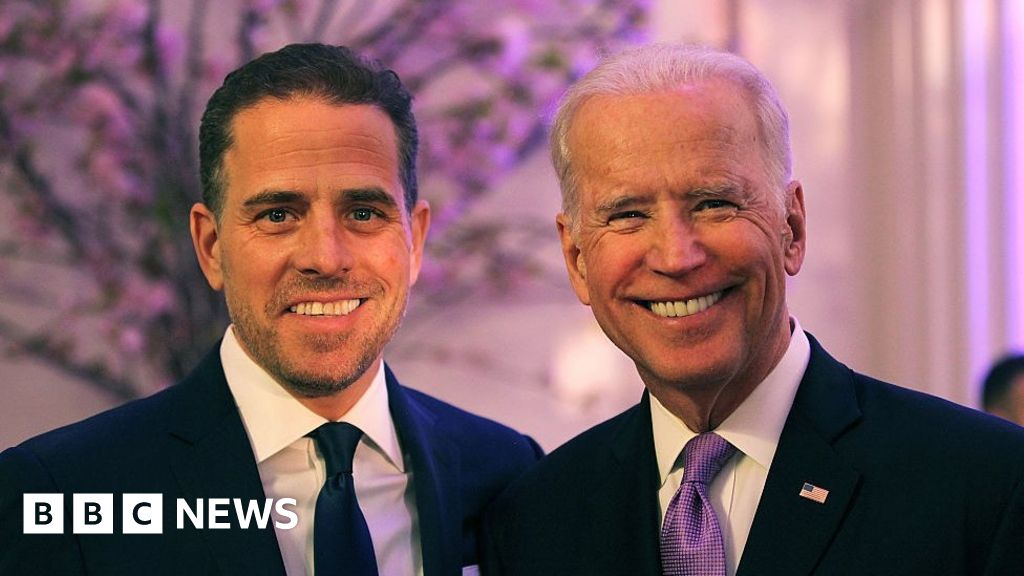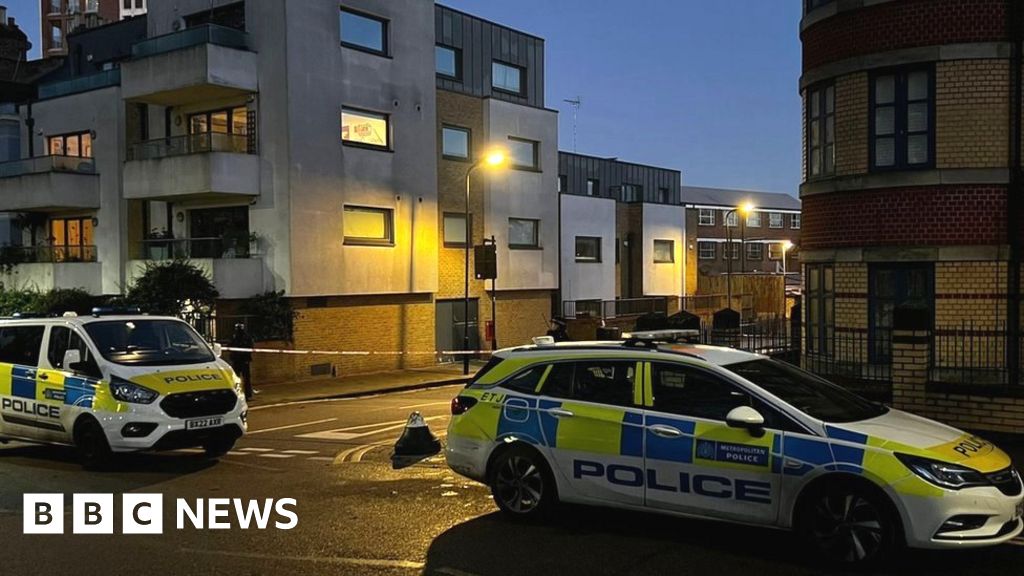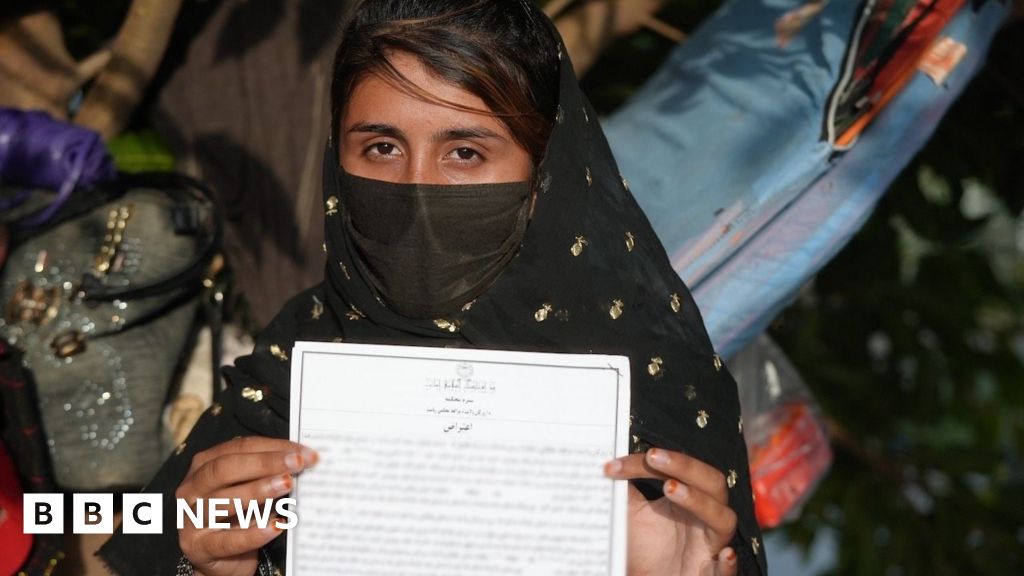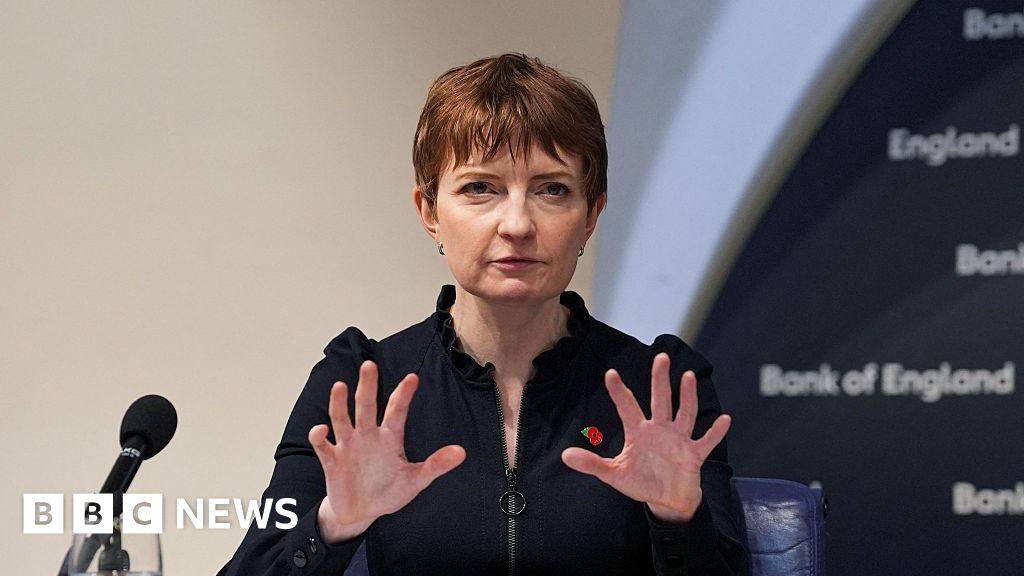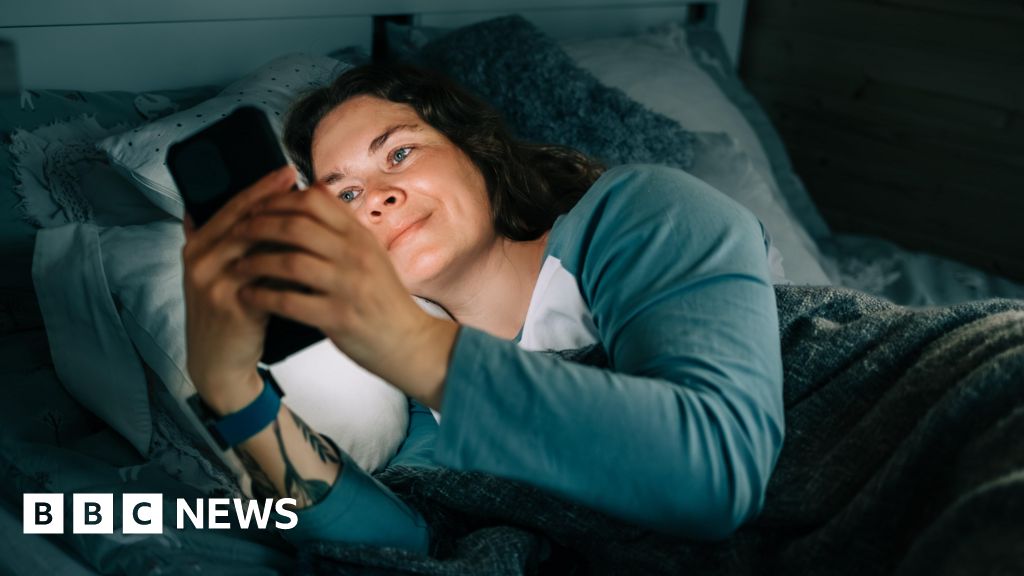Image copyright
EPA/LAURENT GILLIERON
Tourists wear face coverings as they walk the Peak Walk suspension bridge of Glacier 3000, in Les Diablerets, Switzerland
Travellers in Switzerland, Jamaica and Czech Republic who return to the UK from 04:00 on Saturday are to be required to self-isolate for two weeks.
The UK government said the move was needed to keep UK infection rates down.
People arriving in Scotland from Switzerland are already required to self-isolate.
Cuba, where there has been a drop in cases, will be added to the list of destinations people can return from without entering quarantine.
The UK considers imposing quarantine conditions when a country’s rate of infection exceeds 20 cases per 100,000 people over seven days.
The government said data showed there has been a “consistent increase” in the weekly case rate in Switzerland over the past four weeks, with cases per 100,000 rising from 18.5 to 22 over the past week.
Over 1.6m Britons travelled to Switzerland last year, the Swiss Tourism Federation estimated. More than 300,000 British tourists visit the Czech Republic every year, according to the Foreign and Commonwealth Office (FCO).
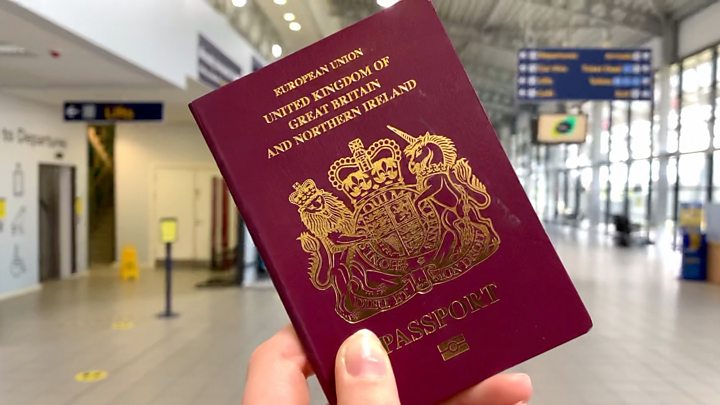
Media playback is unsupported on your device
The FCO has also updated its travel advice to advise against all but essential travel to the Czech Republic, Jamaica and Switzerland.
Announcing the new rules, Transport Secretary Grant Shapps urged British holidaymakers to “only travel if you are content to unexpectedly 14-day quarantine on return”.
The Department for Transport (DfT) said that as infections rise across Europe, the government had made it clear it would take “decisive action” to stem the spread of the virus.
This would include “rapidly” removing countries from the travel corridors list if the public health risk became “too high”.
It advised UK tourists in Switzerland, Jamaica and the Czech Republic to “follow the local rules and check the FCO travel advice pages”.
Katarina Hobbs, director of CzechTourism UK and Ireland, insisted the Czech Republic “remains a safe country to travel to”.
She said: “This is a British government decision that we deeply regret and hope that the UK government will reconsider their decision very soon.”
Image copyright
Getty Images
The celebration in Prague came as the Czech Republic loosened its lockdown restrictions
In July, thousands of guests sat at a 500 metre-long (1,640ft) table on the Charles Bridge in Prague sharing food and drink at a party held to give the coronavirus a “symbolic farewell”.
The event’s organiser said the celebration in the Czech Republic capital was possible due to a lack of tourists in the famously charming city.
In Switzerland, a state of emergency was declared in March, with the government ordering the closure of schools, restaurants, bars and all the ski slopes.
But by June, as cases of Covid-19 start to fall across Europe and more travel was permitted, it reopened its mountain railways and cable cars.
There had been concern about a rising number of Covid cases in Gibraltar, but it remains on the UK’s quarantine exemption list.
Quarantine rules are set by each UK nation separately, but the DfT said equivalent measures are being put in place in Northern Ireland, Scotland and Wales.
Last week restrictions were lifted on those returning from Portugal, but added for travellers coming back from Croatia, Austria and Trinidad and Tobago.
The DfT introduced the compulsory 14-day quarantine for arrivals from overseas in early June.
In the following month, the four UK nations unveiled lists of “travel corridors”, detailing countries that were exempt from the rule.
Since then, the governments have regularly updated that list, adding and removing countries based on their coronavirus infection rates and how they compare with the UK.
‘Held to ransom’
Travellers returning to the UK from Spain in July were caught out by the government’s decision to advise against all but non-essential travel to the mainland and islands after a spike in cases in the country.
Two weeks ago, visitors to France were given a few days’ notice that they would face a quarantine on their return home to the UK.
The editor of Which? Travel, Rory Boland, said the UK government’s weekly review approach to travel meant many holidaymakers found themselves “held to ransom” by airlines when trying to purchase new flights to beat the quarantine deadlines.
The government needed to be transparent with its data and decision-making on travel corridors, he said, so people had the necessary information in advance to decide whether it is safe to travel.
“Struggling tour operators can offer them trips to alternative destinations, rather than facing the financial hit of yet more cancellations and refund pay-outs,” he added.
Meanwhile, the Manchester Airport Group, which operates Manchester, London Stansted and East Midlands airports, has called for an end to the UK’s “sluggish, illogical and chaotic” approach to quarantine.
The company’s chief strategy officer, Tim Hawkins, said: “The government has essentially assumed control of the UK aviation industry and I think with that comes a responsibility to work more quickly with the industry to find solutions.
“These decisions aren’t being made anywhere near quick enough.”
He added the industry could not be sustained with the “current outlook”.
Have you been affected by the quarantine announcement? Share your experiences by emailing [email protected].
Please include a contact number if you are willing to speak to a BBC journalist. You can also get in touch in the following ways:
- WhatsApp: +44 7756 165803
- Tweet: @BBC_HaveYourSay
- Please read our terms & conditions and privacy policy

